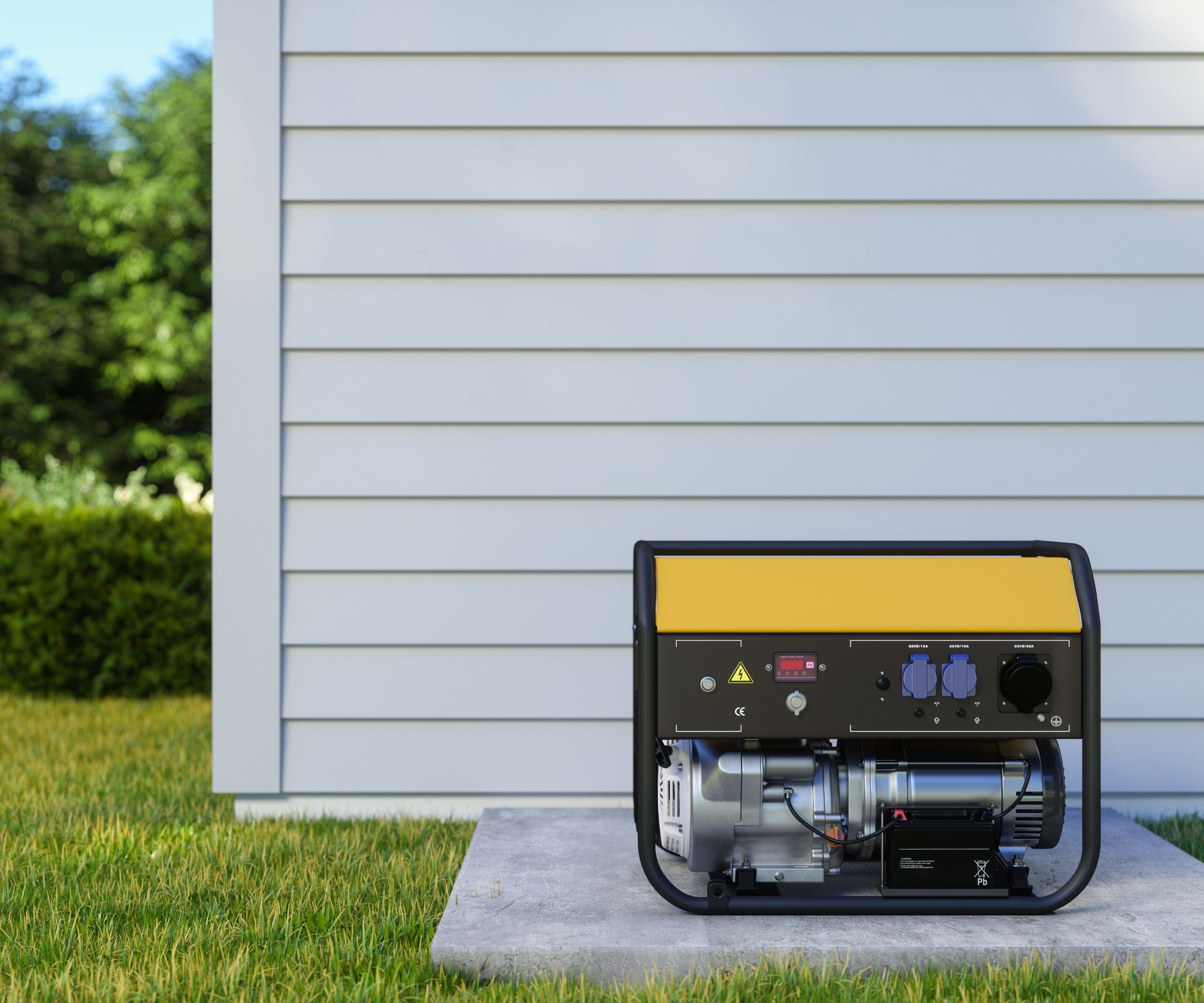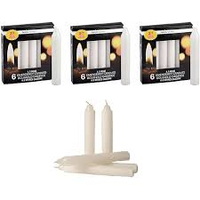How to prepare a home for a power cut – 6 essentials you need in bad weather
Experts share their top tips for preparing your home in the event of a power cut


Bad weather can be miserable at the best of times, let alone when the power goes out and you're left in the dark without the comfort of your home heating or electronic devices.
Whether the power is cut for an hour or over a day, it helps to have some essentials to help keep your home warm and safe until you are reconnected.
This is how to prepare your home for an emergency such as a power cut and stay safe in dangerous weather, according to home care experts and survivalists.
How to prepare a home for a power cut
It is important to prepare your house for cold weather or prepare your house for hurricane season before it hits so that you are not caught up in panic buying inspired by an unfortunate weather forecast.
1. Prioritize heating your home

For those of us with electric heating, when the power is cut, our thoughts immediately turn to how to heat the house when the furnace goes out.
'As such, working out a way to heat yourself and your property is a must, especially if you think a power cut is going to last longer than a few hours,' says Jason Hitchcock, survivalist and founder of Survival Stoic:
‘If your home has a wood-burning fireplace, this is an easy solution. Just ensure it is safe if you don't normally use it, such as preparing your chimney for winter to ensure it is free from obstructions. Gas fireplaces are also a good option. However, some require power to work or to operate the fan. I recommend people test theirs without power first (just turn off the breaker) to know for sure. Some are simply plugged into an outlet underneath that can be powered by a small generator.’
Hooking a generator up to your home is a worthy investment if you live in an area at high risk of power outages.

Jason started Survival Stoic after a EF4 tornado destroyed his neighbourhood and wanted to share his tips and tricks to help people stay safe in extreme situations. He has an engineering degree, a problem-solving background, and has enjoyed being an outdoorsman for over 45 years.
‘Small propane heaters are another option (like the Mr. Heater Portable Buddy Heater, from Amazon). These run on small propane camp stove bottles that are easy to find and store for emergencies.
‘If you have a gas furnace, it does require electricity to run. However, if your furnace is plugged into a standard 110V household outlet, a small gas generator will run it and heat your house just the same. The Honda EU2200i from Machine Mart is a great option here since it is a very quiet inverter generator and can also power a refrigerator or freezer.'
Jason also adds that shutting internal doors and staying in a room with a lower ceiling when using a localized heater can help to keep everyone warmer, especially when the power has been out for a few days.
2. Stock up on alternative lighting

'Lighting is not just important for seeing what you’re doing but boosting your mood too. Ensure that you have plenty of candles, at least one flashlight with spare batteries, and maybe a few wind-up or rechargeable lamps to hand,' says Olga Glenko, electrical account manager at Home Alliance.
Long Burn Emergency Candles | View at Walmart
These 18 long-burn candles stay lit for longer, helping you to reserve light in your home during long power outages.
3. Consider adding a generator to your home

'If you live somewhere where power cuts are an annual occurrence, a backup generator might be a worthy investment,' suggests Ryan Wilson, outdoors expert and owner of The Camper Advisor.
'At my house, I always have a generator on hand, but even more importantly, I’m always sure to have at least 10 gallons of gas handy to fuel it,' says Ryan. 'Having a generator but forgetting to have a fuel supply readily available can lead to a useless generator. You also can’t rely on just running out to get fuel because if the power is out all over town, gas pumps might also be out of commission.
A generator can help to light and heat your home, as well as power important appliances such as your refrigerator, freezer, and stove (if electric).
4. Keep your phone charged

'Prioritizing charging your phone may not seem like the best use of electricity in a power cut, but it is essential to help keep you connected in the case of further emergencies – not to mention that it is also a great distraction when things are looking a bit bleak,' says Jason Hitchcock, a survival expert.
‘I like to keep some type of solar-powered charger at home. One option is the Midland ER40 Emergency Crank Radio at Amazon. It has a solar panel, internal battery, weather radio, AM/FM radio, and a flashlight. I can also use the hand crank to charge the battery if the solar is insufficient. It is a great little multifunctional device.’
You can also get away with a few rechargeable power banks if you don't experience severe weather often and want something usable throughout the year.
5. Prepare water in severe weather

'If your power outage is a result of a snow or ice storm, or other severe weather such as a hurricane, then it is important to prepare your home for a thunderstorm and gather some water supplies in advance of the weather event – especially if you rely on an electric water pump to supply your home,' suggests Mark Brunke, general manager at Environmental Plumbing.
He suggests starting by insulating your water pipes against freezing temperatures so that non-electrical water supplies are still fed. Then, familiarize yourself with the main shut-off valve location in case a pipe does burst in bad weather.
‘If your home relies on an electric water pump, then have a stockpile of drinking water. You should have at least one gallon of water per person per day for at least three days,’ Mark adds.
6. Find a way to cook

In most cases, a power cut means you can’t order a convenient takeout when your stove stops working.
'If you don't have a gas stove or a range cooker, then having a secondary cooking device such as a portable stove will be the best way to ensure a cooked meal,' says survivalist Jason Hitchcock.
Some older gas stoves will operate without power, but some newer ones have a safety valve that must have power to function. A small generator is enough to power these. 'A great emergency stove I like to keep on hand is the Gas One GS-3400P, available at Amazon,' says Jason.
FAQs
What should I not do in a power cut?
When experiencing a power cut, it is important to avoid opening your fridge and freezer any more than necessary to help keep your food cold and prevent it from going bad.
How long do most power outages last?
A power outage can last anywhere from a few minutes to a few days (into weeks), depending on the cause of the power cut. A disrupted powerline or power surge may cause a temporary blackout, while a severe storm and broken electrical supplies may lead to prolonged outages.
Remember, when preparing your house for a power cut, you don't need to go so far as to kit it out for an apocalypse, but enough to see you through the worst of the bad weather comfortably. The supplies you stock may differ depending on the event. Not all power cuts require you to stock up on bottled water, but severe storms and freezing temperatures might. Plan accordingly and realistically to avoid panic.
Sign up to the Homes & Gardens newsletter
Design expertise in your inbox – from inspiring decorating ideas and beautiful celebrity homes to practical gardening advice and shopping round-ups.

Chiana has been at Homes & Gardens for two years and is our resident 'queen' of non-toxic living. She spends most of her time producing content for the Solved section of the website, helping readers get the most out of their homes through clever decluttering, cleaning, and tidying tips. She was named one of Fixr's top home improvement journalists in 2024.
-
 Plants never to grow next to fruit trees
Plants never to grow next to fruit treesExpert advice on which plants to keep away from fruit trees to encourage a healthy harvest
By Jacky Parker Published
-
 Martha Stewart's tips for arranging daffodils are unbelievably simple and effective – it's the only flower advice you need this springtime
Martha Stewart's tips for arranging daffodils are unbelievably simple and effective – it's the only flower advice you need this springtimeMartha shows us that we can create gorgeous bouquets of this seasonal flower by simply trimming the stems and placing them in specific vases
By Hannah Ziegler Published
